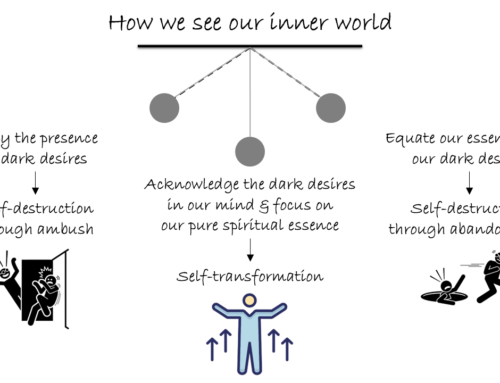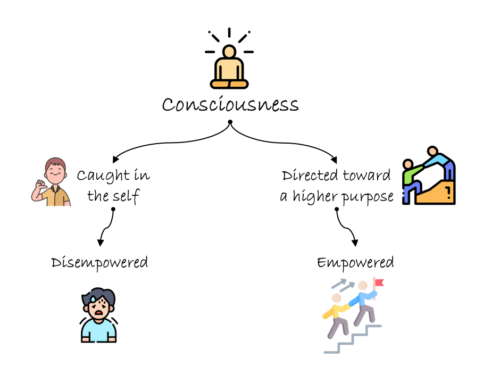Some people advocate that we reject all restrictions, claiming that only by such rejection will we attain freedom.
Yes, restrictions can take away our freedom, but does that apply to all restrictions? We all have some natural habitats – they restrict us and they free us too. Consider, for example, a fish. Its natural habitat is water; it is restricted to living in water. And yet within water, it can swim freely up, down, right, left – everywhere. If in the name of freedom it were made to reject the restriction of living in water, it would suffer and suffer terribly. If not brought back into water quickly, it would even die.
What applies to our physical body applies to our spiritual essence too. We are at our core souls. As the soul’s defining energy is consciousness, the natural habitat of the soul is the right state of consciousness. That right state is the state of loving harmony with the all-attractive whole, Krishna, whose parts we are eternally (15.07).
When in the name of freedom we reject this restriction, our pleasure-seeking nature makes us seek pleasure through our senses. Pandering to their demands subjects us to struggle. And yet, we can’t not pander to them because we can’t live without pleasure. Tragically, we end up enslaved by our senses’ endless demands.
Practicing bhakti-yoga and making our consciousness devotional situates us in Krishna. Steady bhakti practice helps us find inner security in the knowledge and experience of his unfailing love for us. Being thus spiritually boosted, we can work and contribute without the insecurity that often plagues those whose self-worth comes from externals.
By thus accepting the restriction to be situated where we are meant to be, like a fish in water, we become free to relish peace and bliss.
To know more about this verse, please click on the image
Explanation of article:

Podcast:
Download by “right-click and save”




Leave A Comment